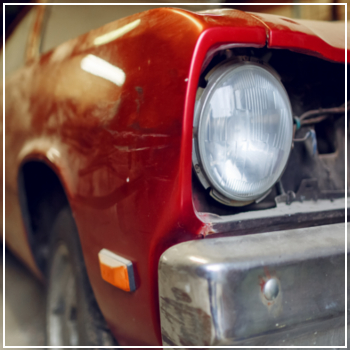Why Are Older-Model Cars More Prone to Rust?
 Restoring a vintage, classic, or antique car can be both rewarding and challenging. One of the most common issues you'll encounter is rust—especially on older models. You might wonder why cars from the 1990s onward seem to resist corrosion better. The answer lies in the evolution of materials and manufacturing techniques.
Restoring a vintage, classic, or antique car can be both rewarding and challenging. One of the most common issues you'll encounter is rust—especially on older models. You might wonder why cars from the 1990s onward seem to resist corrosion better. The answer lies in the evolution of materials and manufacturing techniques.
As technology has advanced, so have the materials used in vehicle construction. Car manufacturers have not only integrated more computer systems into modern vehicles but have also focused heavily on improving durability, especially when it comes to corrosion resistance. This shift has led to the widespread use of materials like galvanized steel and aluminum, which offer better protection against rust and degradation over time.
Here’s what you need to know about these advancements and how they impact your vehicle, whether it's a classic or a newer model.
Galvanized Steel: A Game-Changer in Corrosion Resistance
Since the 1980s, many car manufacturers have started using galvanized steel for body panels and structural components. Galvanized steel is created by bonding zinc to steel, forming a protective layer that significantly slows down the process of rusting. This material has become standard in many American-made vehicles due to its long-lasting performance.
The zinc coating doesn't just sit on top of the steel—it forms an electrolytic bond with the iron in the metal, creating a barrier that prevents oxygen and moisture from reaching the underlying steel. In ideal conditions, this can last up to 70 years without showing signs of corrosion. That's why galvanized steel is often used in original equipment manufacturer (OEM) parts.
However, galvanized steel isn’t completely immune to rust. Areas where the steel has been bent, welded, or cut are more vulnerable. To combat this, some manufacturers apply additional sealants in these high-risk areas. Still, in regions with heavy rain, snow, or road salt, even galvanized steel can begin to corrode if not properly maintained.
Aluminum Parts: Lighter, But Not Always Rust-Proof
Aluminum has gained popularity in recent years due to its lightweight properties and natural resistance to corrosion. It’s lighter than steel, which can improve fuel efficiency and handling. Because of this, many car manufacturers and aftermarket part suppliers have started using aluminum in various components.
But don’t be fooled—aluminum isn’t completely rust-proof. In fact, some studies have shown that aluminum can still corrode under certain conditions, especially when exposed to salt or other contaminants. In 2015, Consumer Reports found that aluminum was not as resistant to corrosion as previously claimed, leading to legal action against Ford for misleading advertising regarding their F-150 and Explorer models.
So while aluminum offers benefits, it still requires proper care and maintenance, especially in harsh environments.
Additional Innovations in Vehicle Design
Manufacturers have also made design improvements to reduce the risk of corrosion. For example, the undercarriage—often the first area to show signs of rust—is now commonly coated with protective layers to shield it from road debris, water, and salt.
Modern vehicles also feature fewer seams and more streamlined designs, reducing areas where dirt and moisture can accumulate. In some cases, plastic is used in place of metal in high-corrosion zones, further protecting the vehicle from damage over time.
Even trim pieces and exterior accents are now often made from galvanized steel instead of chrome-plated or stainless steel, which can flake or corrode more easily.
If you're noticing signs of rust or flaking paint on your car, it's important to address the issue early. At DaSilva’s Auto Body, we specialize in professional rust removal services to restore your vehicle’s appearance and protect it from further damage. Whether you're restoring a classic or maintaining a newer model, our team has the expertise to help.
Contact us today at our Naugatuck location to schedule a consultation or learn more about our services. Let us help keep your car looking great for years to come.
Custom Aluminum Wheelchair,Electric Wheelchair,Hoveround Electric Wheelchair,Heavy Duty Electric Wheelchair
Ningbo Baichen Medical Devices CO.,ltd , https://www.bcscooter.com